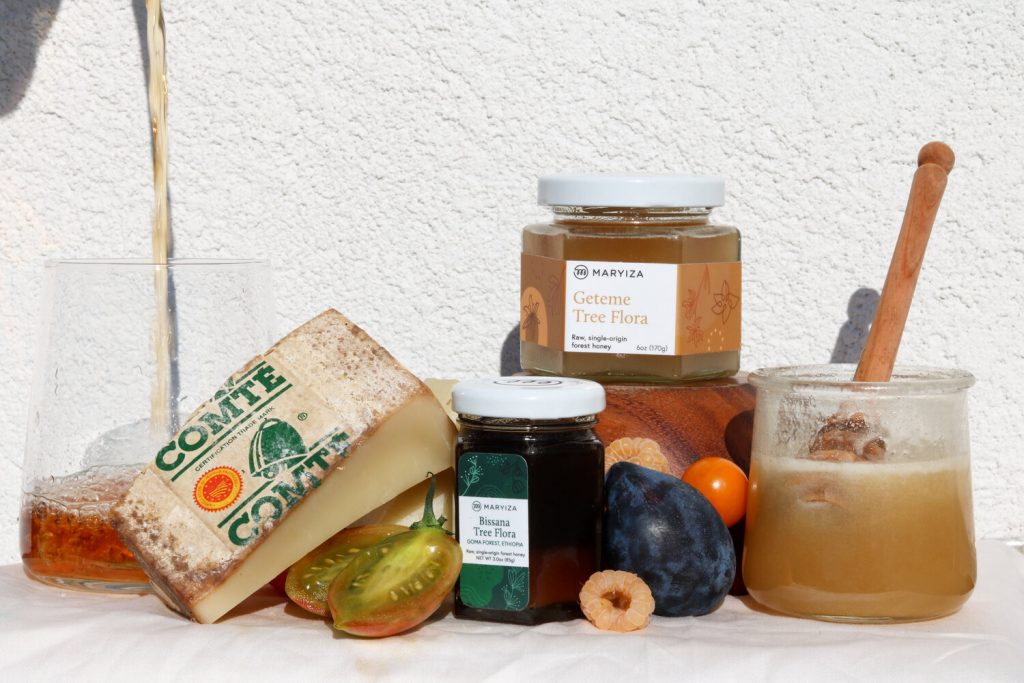
‘Nature is nuanced’. At least according to management and staff at Maryiza Honey. They also think that humanity’s (or any animal or plant or microorganism’s) place is not as clear cut as human society would like to believe. It is based on this idea that those at Maryiza also think that the produce of nature should be enjoyed not to the ‘perfection’ of humanity but the perfection of nature.
Maryiza’s honey is sourced in Southern Ethiopia across the Afromontane Region. The brand says that it embraces and encourages traditional beekeeping culture (tree hives). The hives are hung in the canopy of trees that can get up to 50 feet tall and are brought down based on the floral calendar.
All the honey flavors are given names based on the trees that they are sourced from and each variety showcases the major flora of the tree it comes from. The brand intends to showcase the ‘wonderful variety’ of nature and contribute to the implementation of alternatives to monoculture farming.
Maryiza endorses polyculture farming not only as an alternative for sustainable practices, but also for better products as well. According to the New York Times the Maryiza honeys are prized by chefs for their complex flavors that contain hints of jasmine, praline, smoke and wheat. Maryiza’s website offers four flavor tasting kits for their Abalo, Bissana, Grawa and Geteme varieties.
Renowned for its taste, Maryiza Honey now sets its sights on becoming a brand recognized for its sustainable and inclusive business model. The Ethiopian farmers that cultivate the honey are thus recognized as integral players in the brand’s success and Maryiza ensures that their forest communities are not left out from the benefits of their products.
Maryiza buys the honey directly from the farmers, engages in efforts to increase harvest volumes, provides beekeeping training (both in local and European), and contributing to research about the Ethiopian honey market in an effort to invest directly into the communities where the honey is sourced from.
Chefs describe Maryiza honey as a way to say goodbye to the plastic honey bear and appreciate the taste of raw honey while supporting forest communities that are impacted by the industrialization of products like honey. The name ‘Maryiza’ itself, which translates to ‘a woman holding honey’ is a reference to the honey’s raw roots.
